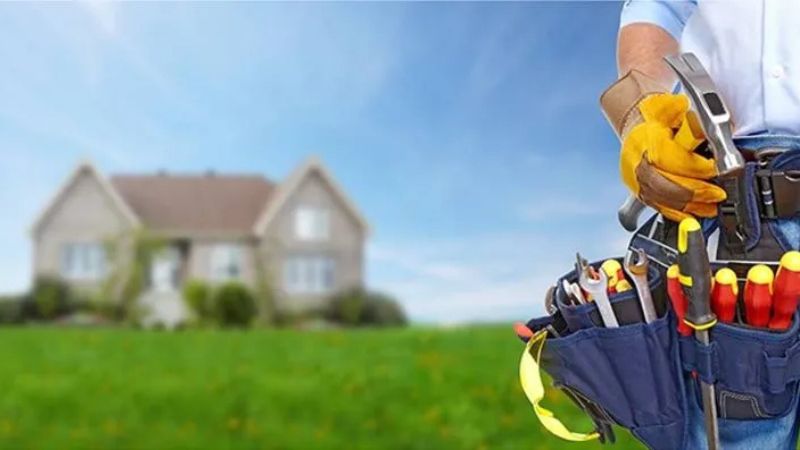Introduction to Preventive Property Maintenance
Preventive property maintenance is a proactive approach to caring for your residential or commercial property before problems arise. Rather than waiting for costly repairs or emergencies, preventive maintenance focuses on regular inspections, timely repairs, and ongoing upkeep. This approach helps extend the lifespan of building systems, reduce unexpected expenses, and preserve the overall value of your property. Whether you are a homeowner, landlord, or business owner, preventive property maintenance is essential for avoiding disruptions and protecting your investment.
Understanding Preventive Property Maintenance
Preventive property maintenance refers to scheduled and consistent actions taken to maintain the structural integrity, safety, and functionality of a property. It includes inspecting roofs, cleaning gutters, servicing HVAC systems, checking plumbing and electrical systems, and addressing small issues before they become major problems. This method ensures that your property remains in good condition throughout the year and reduces the likelihood of expensive emergency repairs.
Benefits of Preventive Property Maintenance
The main advantage of preventive property maintenance is cost savings. By addressing minor issues early, you avoid paying for extensive repairs later. Another benefit is improved safety, as routine inspections help identify hazards such as faulty wiring, water leaks, or structural weaknesses. Preventive maintenance also increases the lifespan of your assets, such as heating systems, roofing, and appliances, which in turn boosts property value. Additionally, for rental properties, regular upkeep enhances tenant satisfaction, reduces turnover, and maintains a positive reputation for landlords.
Key Areas of Preventive Property Maintenance
Roof and Gutter Maintenance
The roof is one of the most important elements of a property, protecting it from weather damage. Regular inspections should check for missing shingles, leaks, or signs of wear. Gutters should be cleaned at least twice a year to prevent water buildup, which can lead to structural damage and mold growth.
Plumbing System Care
A small leak can lead to major water damage if not addressed promptly. Preventive maintenance involves checking pipes for leaks, ensuring drains are clear, and inspecting water heaters for signs of corrosion. Installing water leak detectors can also provide early warnings and prevent costly repairs.
Electrical System Inspection
Faulty wiring is a leading cause of property fires. Regular inspection by a licensed electrician ensures all electrical systems are functioning properly and safely. This includes checking outlets, switches, circuit breakers, and lighting fixtures.
HVAC System Servicing
Heating, ventilation, and air conditioning systems should be serviced at least twice a year—once before summer and once before winter. This helps maintain energy efficiency, improve indoor air quality, and extend the life of your HVAC equipment.
Pest Control Measures
Rodents, termites, and other pests can cause severe damage to a property if left unchecked. Preventive pest control includes regular inspections, sealing entry points, and maintaining cleanliness to deter infestations.
Exterior and Landscaping Upkeep
Regular painting, siding maintenance, and lawn care not only improve curb appeal but also prevent weather-related damage. Trees should be trimmed away from the property to avoid damage from falling branches.
Interior Maintenance
Interior preventive maintenance involves checking for signs of mold, ensuring appliances are functioning correctly, and keeping flooring, walls, and ceilings in good condition. This also includes replacing worn-out fixtures and upgrading insulation for energy efficiency.
Best Practices for Preventive Property Maintenance
To ensure your preventive maintenance plan is effective, keep a detailed schedule of inspections and servicing. Use a checklist to cover all areas of the property and document each maintenance activity. Work with licensed professionals for specialized inspections such as plumbing, electrical, and HVAC systems. Always budget for maintenance costs, as this ensures you can address issues promptly without financial strain.
The Role of Property Management in Preventive Maintenance
For property owners who do not have the time or expertise to handle maintenance themselves, hiring a property management company can be a wise decision. These companies offer professional preventive maintenance services, conduct regular inspections, and coordinate with contractors for repairs. This ensures the property remains in top condition while minimizing the owner’s workload.
Why Preventive Maintenance is a Long-Term Investment
Many property owners view preventive maintenance as an unnecessary expense, but it should be seen as a long-term investment. Spending a small amount regularly to maintain your property can save thousands of dollars in future repair costs. Additionally, well-maintained properties appreciate in value over time, which benefits owners when it comes to selling or leasing.
Conclusion
Preventive property maintenance is an essential strategy for protecting the value, safety, and functionality of your property. By addressing potential problems before they escalate, you save money, ensure a safe environment, and extend the life of your property. Whether you manage a home, rental units, or commercial buildings, adopting a proactive maintenance approach is the smartest way to secure your investment for years to come.
FAQs
1. How often should preventive property maintenance be performed?
Preventive maintenance should be performed throughout the year, with some tasks done monthly, quarterly, or annually, depending on the system or area being maintained.
2. Can I do preventive maintenance myself?
Some basic tasks such as cleaning gutters or replacing air filters can be done yourself. However, specialized inspections, such as electrical or HVAC servicing, should be performed by professionals for safety and accuracy.
3. Is preventive maintenance cost-effective?
Yes, preventive maintenance saves money in the long run by avoiding major repairs and extending the life of property systems and components.
4. What happens if I skip preventive maintenance?
Skipping preventive maintenance can lead to unexpected breakdowns, costly repairs, safety hazards, and a decrease in property value.
5. Should rental properties have a preventive maintenance plan?
Absolutely. Preventive maintenance for rental properties keeps tenants satisfied, prevents disputes, and ensures the property remains in excellent condition for future tenants.
